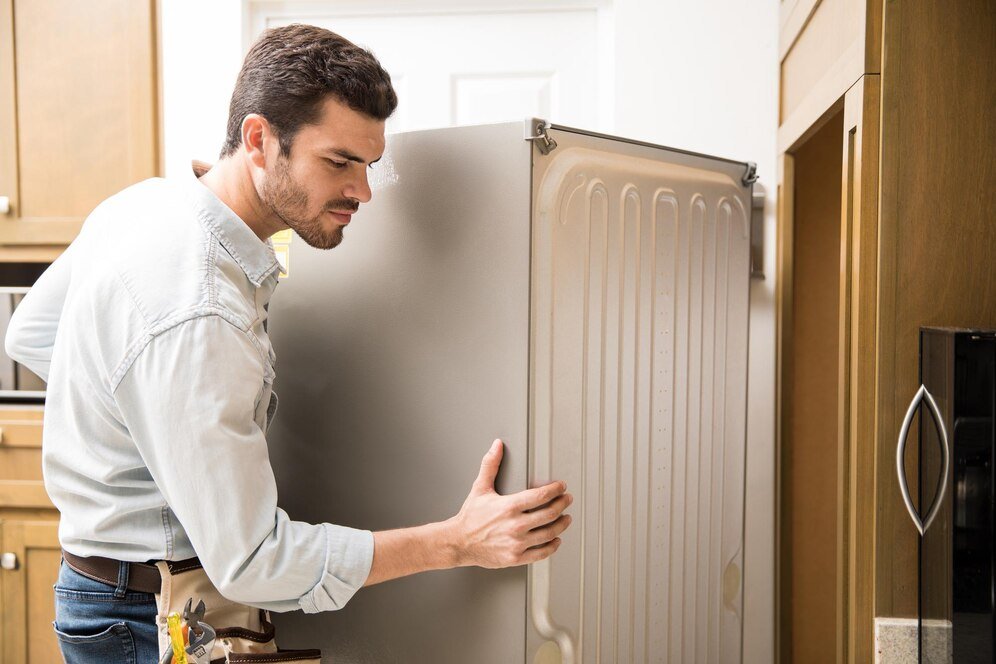
Food waste is a global environmental concern. A staggering one-third of all food produced is lost or wasted across the supply chain, from farm to fork. This represents a significant loss of resources and contributes to environmental problems like greenhouse gas emissions. In this critical scenario, green technology for food storage is emerging as a game-changer, offering sustainable solutions to extend shelf life and dramatically reduce food waste.
Greener refrigeration: chilling out with the environment
Traditional refrigeration systems rely on harmful synthetic refrigerants that contribute to climate change when they leak. Green technology for food storage is tackling this issue head-on by promoting natural refrigerants like ammonia, solid carbon dioxide, and hydro-fluoro carbons. These alternatives boast excellent cooling capabilities while minimizing their environmental footprint.
Furthermore, advancements in energy-efficient design are revolutionizing refrigeration systems. Improved insulation materials and tighter seals minimize energy loss, significantly reducing power consumption. Additionally, smart inverter technology dynamically adjusts compressor speed to match cooling needs, further optimizing energy usage. By adopting these eco-friendly refrigeration solutions, both households and commercial food storage facilities can significantly reduce their environmental impact.
From plastic to compostable packaging

Packaging plays a vital role in food storage, but traditional plastic options often contribute to a significant portion of the world’s plastic waste problem. Green technology is paving the way for innovative and sustainable packaging solutions that prioritize food preservation while minimizing environmental impact.
Biodegradable and compostable materials like plant-based bioplastics and cellulose derivatives are gaining traction in the food packaging industry. These materials decompose naturally after use, posing no threat to the environment. Additionally, edible coatings derived from natural sources like beeswax or plant extracts are being explored as a viable alternative to plastic wrap. These coatings create a protective barrier around food, extending shelf life and eliminating the need for plastic altogether.
Smart storage
Smart refrigerators equipped with IoT sensors that connect to the internet are becoming increasingly popular. These intelligent fridges monitor temperature and humidity levels, providing valuable data on food freshness. They can even be programmed to send alerts when food is nearing its expiry date, prompting consumers to use it before it spoils.
Smart storage systems that utilize advanced technologies like controlled atmosphere storage are being developed. These systems employ a combination of precise temperature and gas (oxygen and carbon dioxide) controls to create an ideal environment for specific types of produce, significantly extending their shelf life.
A greener future for food storage

Green technology’s contributions to food storage extend far beyond individual innovations. The synergy between eco-friendly refrigeration, sustainable packaging, and smart storage systems creates a holistic approach to food waste reduction.
Imagine a scenario where food is stored in a refrigerator that uses natural refrigerants and minimal energy. The food is then wrapped in a biodegradable film that extends its shelf life, and the smart storage system provides real-time updates on its freshness. This combined approach significantly reduces the risk of spoilage and empowers consumers to buy only what they need, maximizing the lifespan of their groceries.
Continuous innovation for a sustainable future
The fight against food waste is a continuous battle, but green technology for food storage offers powerful weapons. Ongoing R&D is leading to even more innovative solutions such as anti-microbial coatings that inhibit the growth of bacteria on food surfaces and food irradiation techniques that eliminate harmful pathogens without compromising freshness.
As these technologies become more accessible, we can expect a significant reduction in food waste across the supply chain. From households to commercial storage facilities, the adoption of green technology will play a pivotal role in creating a more sustainable food system for future generations.
Growing a Sustainable Future: Homegrown Goodness
While green technology is revolutionizing food storage at large, it can also empower individuals to cultivate a more sustainable food system at home. For those with access to even a small balcony or patio, urban gardening offers a rewarding and environmentally friendly way to reduce reliance on grocery stores and food waste.
Here’s how green technology can enhance the homegrown food experience:
Smart Indoor Gardens
Compact and self-contained indoor gardening systems are gaining popularity. These innovative setups often utilize LED lights that mimic natural sunlight, promoting healthy plant growth even in limited-space environments. Some systems integrate sensors that monitor factors like moisture and nutrient levels, allowing for precise control over the growing environment and easier ripening processes or storage options. This level of automation can be particularly beneficial for novice urban gardeners, ensuring optimal conditions for their homegrown produce.
Energy-efficient grow lights

Traditional grow lights are notorious for their high energy consumption. However, advancements in LED technology have brought in energy-efficient grow lights that provide the necessary spectrum of light for plant growth while minimizing electricity usage. This allows home growers to cultivate their own food without a major increase in their energy footprint.
Water-saving irrigation systems
Efficient water usage is crucial for sustainable gardening. Drip irrigation systems deliver water directly to the root zone of plants, minimizing evaporation and water waste. Rainwater harvesting systems can also be implemented to collect rainwater for irrigation, reducing reliance on municipal water supplies.
Synergy in sustainability: from seed to storage
The beauty of this approach lies in its holistic nature. Homegrown vegetables can be stored in eco-friendly refrigerators, extending their shelf life and minimizing the need for store-bought produce packaged in plastic. Biodegradable and compostable materials used for wrapping homegrown vegetables further reduce environmental impact.
Furthermore, the scraps and trimmings from homegrown vegetables can be composted to create nutrient-rich fertilizer for gardens, closing the loop and minimizing waste. This cyclical approach to food production fosters a sense of self-sufficiency and environmental responsibility.
Sustainable future on our plates
Green technology for food storage is not just a buzzword; it’s a driving force for positive change in the way we store food. By prioritizing eco-friendly solutions that extend shelf life and minimize waste, we can create a more sustainable future for our planet.




